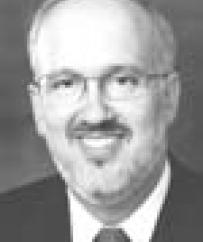The recent political fallout and subsequent demise of the proposal to study the expansion of the 101 Freeway leaves 101 commuters and regional planners with no current or future plans to increase capacity on the 101 corridor. Rusty Hammer, President and CEO of the Los Angeles Area Chamber of Commerce, comments on the situation in his column "The Business Perspective." MIR is pleased to reprint the column.

Rusty Hammer
It looks like the NIMBYs will win again. And if they do, it will be yet another example of the greater good being sacrificed because of the interests of a relatively few.
Last week, public support quickly evaporated for a study to expand the U.S. 101 because the plans would have resulted in taking homes and businesses. Politicians, who only a week earlier said they supported the plans, turned against them. LA Mayor Hahn lent his support to the 101 project and did not jump off the wagon when the heat was on. We commend him for that. Sen. Sheila Kuehl disappointed us when she bowed down to angry homeowners and residents and reversed her long-standing support position when she said, "It just isn't worth it."
It is worth it!
Mobility is perhaps the most critical problem we need to solve in the next 20 years. Already our transportation corridors are congested. Freeways move at a snails pace. City streets are jammed. And, a local proposition approved in 1998 prevents the use of transportation sales tax revenues for future subway construction.
In the case of the 101, transportation planners have been evaluating this corridor for almost two years and have recommended a multi-modal approach to improving traffic on the freeway. This includes a series of street, bus rapid transit and bus/express services improvements and expansion of the freeway by adding two new bus/carpool lanes and one mixed flow lane in places where the freeway has only four lanes. There are no other major improvements planned for this corridor in the future and according to Caltrans, by the year 2025, the 101 freeway will need up to seven additional freeway lanes in each direction to only slightly improve current traffic congestion levels.
Yes, these improvements will take homes and businesses. And, anyone whose home or business falls victim to the expansion would be fairly compensated. But, by mobilizing people, with letters and e-mails by the hundreds, the opponents convinced the politicians that their personal interests should take precedence over the good that expansion would bring to the entire regional economy. But, let's keep things in perspective. The homes would not be razed tomorrow. Shops would not be out of business next month. Instead, the proposal was to place the project on MTA's long-range transportation plan, along with hundreds of other worthwhile, yet costly, projects. This will enable the project to be eligible for federal aid after the project is studied further in the future. Best estimates are that the project is at least 20 years away and who knows what form it would take after extensive public outreach is completed.
And then there's the I-710 study, which looks like it is dead before it even got started. Last week, LA County Supervisor Gloria Molina introduced a motion that directed the MTA to circumvent the planning process for the 710 and remove any alternatives that result in the acquisition of businesses and residential parcels. All this before the 710 policy committee meets on May 28 to discuss the alternatives on the table.
It would be another thing if the opponents had a better idea for the 101 or the 710. But they don't. Their answer is "demand management." In laymen's language that means controlling traffic on city streets. In the case of the I-710 that means limiting traffic leaving the ports. In the case of the 101, perhaps building more parking lots and improving signal controls on city streets.
But that really isn't demand management. Real demand management would be to limit the number of days people could drive. For instance, you would only be able to drive on odd days of the month if your license plate ended in an odd number. Think I am kidding? It has been done before. Remember the long gas lines in the 70s? The government regulated demand by only allowing people to buy gas on certain days. During droughts people have been limited to watering on select days. If demand management is what they propose to do to solve our mobility problems, then let them speak clearly and say what they really mean.
Is that what we really want? Or do we really want a transportation system (roads, buses, rail, bikeways, etc.) that really works and move people and goods effectively? I think that is what we want-and what we need-to keep LA moving forward even if it means that some homes or businesses will need to be relocated.
When will people stop being disingenuous and say what they mean? When will we begin to look beyond our own neighborhoods and do what is best for the region? When will people rise above their own parochial interests to do what is right for the rest of us?
On Friday, May 23, the 101 steering committee will meet at 10 a.m. at the MTA Board Room to vote one the recommend alternatives. On May 28, the 710 policy panel will meet at 6:30 p.m. at Paramount Progress Park, 15500 Downey Ave. We can't let the homeowner groups and residents be the only decision makers in our region-the business community needs to be stand up and heard.
Let's find a way to get beyond NIMBYism.
Let's find public and political leadership to address the critical challenges facing our region.
And that's The Business Perspective.
- Log in to post comments



